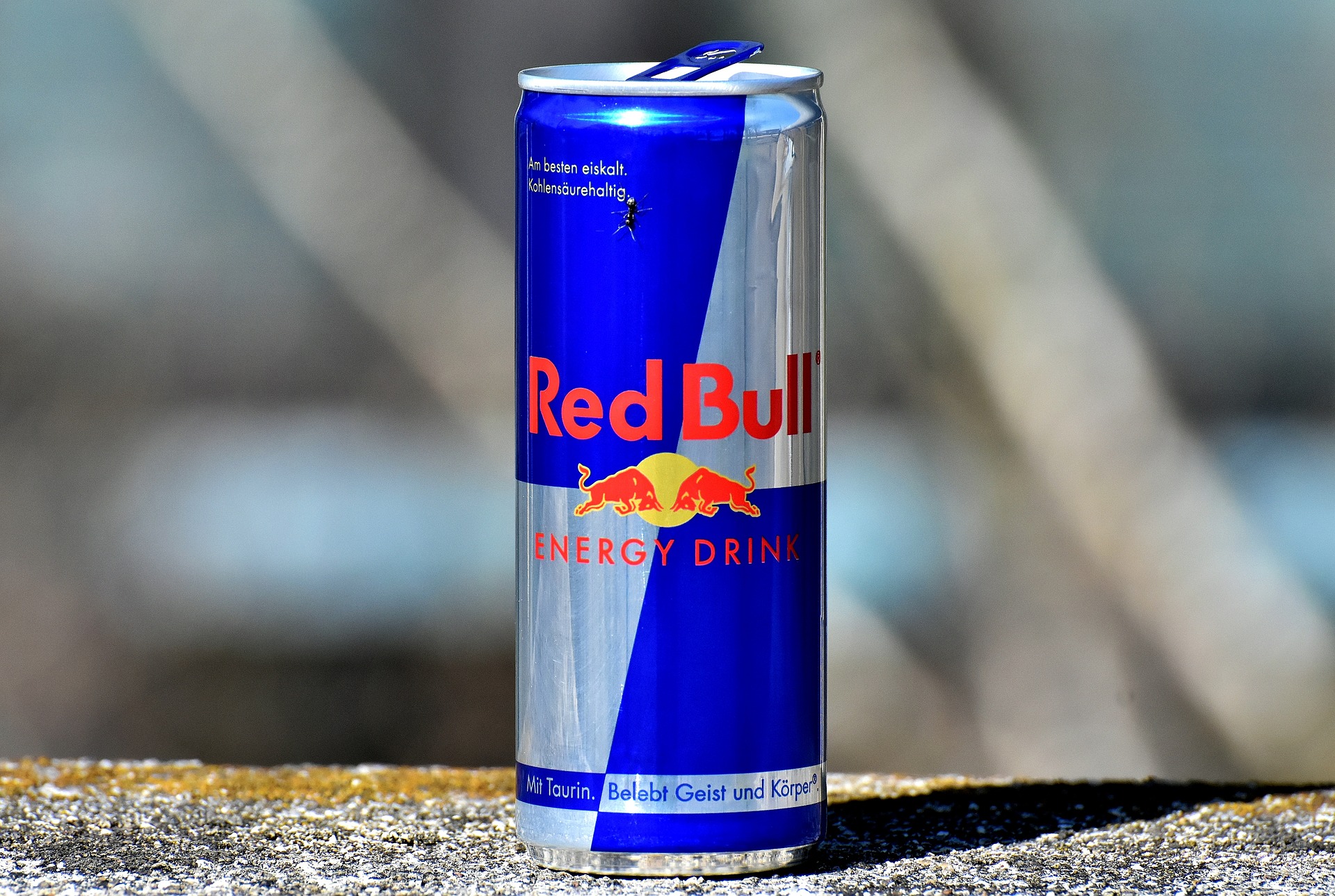Energy drinks have become a ubiquitous presence in modern society, marketed as quick fixes for fatigue and promises of enhanced performance and alertness. They are especially popular among young adults, athletes, and busy professionals. However, the health implications of consuming these beverages have sparked significant debate among health experts, researchers, and consumers. This article will explore the composition of energy drinks, their effects on the body, the potential health risks, regulatory concerns, and safer alternatives to these popular beverages.
Composition of Energy Drinks
Energy drinks typically contain a mix of ingredients designed to boost energy levels and improve mental performance. The primary components include:
Caffeine
Most energy drinks contain high levels of caffeine, a central nervous system stimulant known for its ability to ward off drowsiness and restore alertness. The caffeine content can range from 50 mg to over 300 mg per serving, sometimes more than triple the amount found in a standard cup of coffee.
Sugar
Many energy drinks are loaded with sugar to enhance taste and provide quick energy. Some contain as much as 27 to 54 grams of sugar per serving, contributing significantly to daily caloric intake.
Vitamins and Amino Acids
Ingredients such as B vitamins, taurine, glucuronolactone, and others are often added to support energy metabolism and improve physical performance.
Herbal Extracts
Some energy drinks include herbal ingredients like ginseng, guarana, and ginkgo biloba, believed to have various health benefits, including improved cognitive function and reduced fatigue.
Effects on the Body
The effects of energy drinks on the body can be both immediate and long-term, influencing various physiological systems.
Central Nervous System
Caffeine is the primary active ingredient in energy drinks, and its stimulant effects can increase alertness, improve concentration, and reduce the perception of effort during physical activities. However, excessive caffeine intake can lead to jitteriness, anxiety, heart palpitations, and insomnia.
Metabolism and Energy
The high sugar content provides a rapid spike in blood glucose levels, offering a quick energy boost. However, this is often followed by a “crash” as blood sugar levels drop, leading to feelings of fatigue and irritability.
Cardiovascular System
Caffeine and other stimulants in energy drinks can increase heart rate and blood pressure. For some individuals, particularly those with underlying heart conditions, this can pose significant risks, including arrhythmias and hypertension.
Mental Performance
While moderate caffeine consumption can enhance cognitive function and improve mood, excessive intake can impair mental performance, increase anxiety, and contribute to mood swings.
Potential Health Risks
The popularity of energy drinks has raised concerns about their potential health risks, particularly when consumed in large quantities or combined with other substances like alcohol.
Caffeine Toxicity
High doses of caffeine can lead to toxicity, with symptoms including restlessness, tremors, nausea, vomiting, and in severe cases, seizures and death. The risk is higher for individuals with low caffeine tolerance or those who consume multiple energy drinks in a short period.
Cardiovascular Issues
Regular consumption of energy drinks has been linked to adverse cardiovascular effects, such as increased blood pressure, irregular heart rhythms, and, in extreme cases, heart attacks. These risks are amplified in individuals with pre-existing heart conditions or those who consume energy drinks in combination with alcohol or other stimulants.
Metabolic Concerns
The high sugar content in many energy drinks contributes to increased calorie intake, which can lead to weight gain and increase the risk of metabolic conditions such as type 2 diabetes. Sugar-free versions, while reducing calorie intake, often contain artificial sweeteners, which carry their own health concerns.
Mental Health
Excessive caffeine consumption can lead to increased anxiety, panic attacks, and other mental health issues. Dependence on caffeine can also result in withdrawal symptoms, including headaches, fatigue, and irritability.
Regulatory Concerns
The regulation of energy drinks varies widely across countries, reflecting differing approaches to public health and safety.
Labeling and Marketing
In many regions, energy drink labels must disclose caffeine content and include warnings about excessive consumption. However, marketing practices often target young people, athletes, and those seeking enhanced performance, potentially downplaying the associated risks.
Age Restrictions
Some countries have implemented age restrictions on the sale of energy drinks to minors, aiming to protect young people from the adverse effects of high caffeine and sugar intake.
Bans and Limitations
In response to growing health concerns, some jurisdictions have banned the sale of certain energy drinks or limited their availability. For example, several European countries have restrictions on the sale of high-caffeine energy drinks.
Safer Alternatives
Given the potential health risks associated with energy drinks, individuals seeking to boost their energy levels and mental performance can consider safer alternatives.
Coffee and Tea
Natural sources of caffeine like coffee and tea can provide a more moderate and controlled caffeine intake. These beverages also contain antioxidants and other beneficial compounds.
Hydration
Sometimes, fatigue and decreased performance are due to dehydration. Drinking water or electrolyte-rich beverages can help maintain energy levels and support overall health.
Balanced Diet
Consuming a balanced diet rich in complex carbohydrates, proteins, healthy fats, and vitamins can provide sustained energy throughout the day. Foods like whole grains, lean meats, nuts, fruits, and vegetables are excellent choices.
Adequate Sleep
Ensuring adequate sleep is crucial for maintaining energy and cognitive function. Good sleep hygiene practices, such as maintaining a regular sleep schedule and creating a restful environment, can significantly improve overall well-being.
Physical Activity
Regular physical activity can boost energy levels and improve mood. Exercise increases blood flow, enhances the release of endorphins, and supports overall cardiovascular health.
Stress Management
Chronic stress can drain energy and impair mental performance. Techniques such as mindfulness, meditation, deep breathing exercises, and yoga can help manage stress and improve energy levels.
FAQs
What are the main ingredients in energy drinks?
Energy drinks typically contain caffeine, sugar, vitamins (especially B vitamins), amino acids like taurine, and herbal extracts such as ginseng and guarana.
How much caffeine is in an average energy drink?
The caffeine content in energy drinks can range from 50 mg to over 300 mg per serving.
Are energy drinks safe for teenagers?
Energy drinks are not recommended for teenagers due to the high caffeine and sugar content, which can affect developing bodies and brains.
Can energy drinks improve athletic performance?
While energy drinks can temporarily boost alertness and reduce fatigue, their long-term effects on athletic performance are mixed, and they may lead to dehydration and increased heart rate.
What are the signs of caffeine overdose?
Signs of caffeine overdose include restlessness, tremors, nausea, vomiting, rapid heartbeat, and, in severe cases, seizures.
Can energy drinks cause heart problems?
Regular consumption of energy drinks has been linked to increased heart rate, high blood pressure, and, in severe cases, heart attacks, especially in individuals with pre-existing heart conditions.
Are sugar-free energy drinks a healthier option?
Sugar-free energy drinks reduce calorie intake but often contain artificial sweeteners, which have their own health concerns.
Can energy drinks cause anxiety?
Excessive caffeine consumption from energy drinks can increase anxiety, lead to panic attacks, and affect overall mental health.
How do energy drinks affect sleep?
Energy drinks can disrupt sleep patterns due to their high caffeine content, leading to insomnia and reduced sleep quality.
Are there any long-term health effects of drinking energy drinks regularly?
Long-term consumption of energy drinks can lead to cardiovascular issues, metabolic problems like type 2 diabetes, and mental health concerns.
Can pregnant women drink energy drinks?
Pregnant women are advised to avoid energy drinks due to their high caffeine and sugar content, which can affect fetal development.
How do energy drinks compare to coffee in terms of health effects?
While both contain caffeine, energy drinks often have higher levels and additional ingredients like sugar and herbal extracts, leading to more pronounced health risks compared to coffee.
Are there any regulations on the sale of energy drinks?
Regulations vary by country, with some implementing age restrictions, mandatory labeling, and bans on high-caffeine energy drinks.
What are the benefits of drinking water or electrolyte-rich beverages instead of energy drinks?
Water and electrolyte-rich beverages hydrate the body without the risks associated with high caffeine and sugar, supporting overall health and sustained energy.
How can a balanced diet help maintain energy levels?
A balanced diet provides essential nutrients that support energy metabolism and overall health, helping to maintain steady energy levels throughout the day.
Why is adequate sleep important for energy and cognitive function?
Adequate sleep allows the body to repair and recharge, improving cognitive function, mood, and overall energy levels.
What role does physical activity play in boosting energy levels?
Physical activity increases blood flow, releases endorphins, and improves cardiovascular health, leading to increased energy and better mood.
How can stress management techniques improve energy levels?
Stress management techniques like mindfulness and meditation reduce chronic stress, which can drain energy and impair mental performance.
Are there any herbal alternatives to energy drinks?
Herbal alternatives like green tea, yerba mate, and ginseng tea provide natural energy boosts with fewer risks compared to energy drinks.
Can energy drinks be mixed with alcohol?
Mixing energy drinks with alcohol is dangerous as it can mask the effects of intoxication, leading to higher alcohol consumption and increased risk of alcohol poisoning.
What is the maximum recommended daily intake of caffeine?
The FDA recommends a maximum daily intake of 400 mg of caffeine for most adults, which is roughly the amount in four to five cups of coffee.
How do energy drinks affect children?
Children are more sensitive to caffeine, and consumption of energy drinks can lead to hyperactivity, anxiety, and sleep disturbances.
Can energy drinks lead to weight gain?
The high sugar content in many energy drinks can contribute to increased calorie intake and weight gain.
Are there any benefits to the vitamins and amino acids in energy drinks?
While vitamins and amino acids in energy drinks can support energy metabolism, their benefits are often overshadowed by the risks associated with high caffeine and sugar.
How do energy drinks impact hydration?
Energy drinks can lead to dehydration, especially if consumed during or after physical activity, due to their diuretic effects.
What are the alternatives to energy drinks for boosting energy naturally?
Natural alternatives include drinking water, consuming a balanced diet, getting adequate sleep, engaging in regular physical activity, and practicing stress management techniques.
Why are energy drinks popular among young adults?
Energy drinks are popular among young adults due to their marketing, taste, and the perceived benefits of increased energy and alertness.
What are the risks of consuming multiple energy drinks in a short period?
Consuming multiple energy drinks can lead to caffeine toxicity, with symptoms like restlessness, rapid heartbeat, nausea, and, in severe cases, seizures.
Can energy drinks affect mental health?
Excessive consumption of energy drinks can lead to increased anxiety, panic attacks, and other mental health issues.
Are there any specific health conditions that energy drinks exacerbate?
Energy drinks can exacerbate conditions like hypertension, heart disease, anxiety disorders, and diabetes.
What are the potential effects of herbal extracts in energy drinks?
Herbal extracts like ginseng and guarana can have stimulant effects, but their safety and efficacy vary, and they can interact with medications.
How does the sugar content in energy drinks compare to other sugary beverages?
Energy drinks often contain as much or more sugar than other sugary beverages, contributing significantly to daily sugar intake.
What are the marketing tactics used by energy drink companies?
Marketing tactics include targeting young people, athletes, and professionals with promises of enhanced performance, alertness, and lifestyle appeal.
Are there any reported cases of energy drink-related health emergencies?
There have been reported cases of health emergencies, including heart attacks and seizures, linked to excessive energy drink consumption.
Can energy drinks improve academic performance?
While they can temporarily boost alertness, the long-term effects on academic performance are mixed, and excessive consumption can impair cognitive function.
How do energy drinks affect the digestive system?
The high caffeine and sugar content can lead to digestive issues like acid reflux, stomach cramps, and diarrhea.
Are there any studies on the long-term effects of energy drink consumption?
Studies on long-term effects are ongoing, but current evidence suggests significant risks to cardiovascular, metabolic, and mental health.
Conclusion
Energy drinks, while popular for their immediate effects on alertness and energy, pose significant health risks, particularly when consumed excessively or by vulnerable individuals. The high caffeine and sugar content, along with other stimulants, can lead to adverse cardiovascular, metabolic, and mental health outcomes. Regulatory measures, such as labeling, marketing restrictions, and age limits, aim to mitigate these risks, but personal responsibility and informed choices are crucial.
Safer alternatives, including natural sources of caffeine, proper hydration, balanced nutrition, adequate sleep, regular physical activity, and stress management, offer healthier ways to maintain energy levels and enhance performance. By making mindful choices, individuals can achieve the desired boost in energy and alertness without compromising their health.



